Leaving Neverland - HBO's controversial 4-hour documentary chronicling Michael Jackson's alleged sexual abuse of two different men starting when they were just 7-years-old - is tough to watch. There's a reason it comes with a warning to any viewers who might not be able to handle a sexually explicit discussion of a thirtysomething dude molesting kids. It's not just that, though. It's tough to watch because the emotions on display are so raw. By the end, families are torn apart, mothers who failed to protect their sons are practically disowned, and wives are left struggling with how to handle emotionally disturbed husbands.
In the hour-long after special hosted by Oprah, it's clear Jackson's two accusers, Wade Robson and Jimmy Safechuck, who first met the pop star at the height of his fame in the late 1980s, are still in the process of healing. Even after agreeing to be in the documentary, following it to Sundance this year, and riding the wave to this big HBO premiere, the topic still moves them to tears. As they both say in the special, once this moment is over they will still be dealing with this for the rest of their lives.
I wasn't sure if I was going to watch Leaving Neverland, mostly because I wasn't sure if it would truly change anyone's opinion. Michael either molested kids or he didn't. If you're old enough to remember Jackson's slide from unquestioned global superstar to "Wacko Jacko" to alleged molester, you probably already have your opinion about him.
Ever since I saw Living With Michael Jackson, I've had my suspicions. If he's guilty, Leaving Neverland lays out exactly how he allegedly did it. The answer is sadly familiar to experts in the sex crimes field: he groomed both the children and their families so that once the abuse began the children didn't view it as wrong. The families, meanwhile, didn't realize anything was happening and would never suspect such vile behavior from such a sweet man. Little did they know Jackson allegedly practiced drills with the kids to rehearse what they'd do if someone walked in on them in middle a sexual act.
The resulting emotional bond between Jackson and his victims was so strong they still held immense affection for him into adulthood, even though their interactions were all but nonexistent by that point. When Jackson let Martin Bashir and a camera crew follow him around everywhere in 2002, neither Robson nor Safechuck were a part of his life anymore. They would soon be pulled back into his orbit, however, by controversy.
Gavin Arvizo in Living With Michael Jackson
Bashir's documentary, Living With Michael Jackson, was an instant lightning rod, either depicting a mentally and emotionally disturbed celebrity who had clearly lost complete touch with reality or revealing an opportunistic journalist who duped a naive man or both.
The inevitable South Park parody made light of our collective unease about Jackson:
As a direct result of Living With Michael Jackson's discomforting scenes with Arvizo, the King of Pop was again formally accused of child abuse. Robson, as he had done a decade earlier, testified in his defense. Safechuck was also leaned on to provide testimony, but unlike in 1993, he refused. Jackson, Leaving Neverland argues, usually turned surprisingly threatening when faced with pushback like that, promising, "I always get what I want." Safechuck still refused.
In his absence, Jackson was able to convince MacAulay Culkin to testify, who then and now claims their relationship was completely innocent. Leaving Neverland paints Robson and Culkin's combined testimony as being the turning point in the trial, the thing which sealed the deal for the defense and kept Michael out of jail. Jackson's lawyer on that case disputes that conclusion, telling Vanity Fair,
"This was a five-month trial, and many other things happened that were important to the defense. I was able to effectively cross-examine the prosecution's witnesses and devastate their case. We also had many other witnesses, like [comedian and Jackson friend] Chris Tucker, who presented important factual information to the jury."
The lead lawyer for the prosecution, meanwhile, always suspected Robson perjured himself in defending Jackson. "Oh, we thought he was lying. There was no question in our minds about that. We were convinced he was a victim of long-term sexual abuse by Jackson. And everything about his behavior on the witness stand suggested that we were correct."
I know all of that, however, because immediately after watching Leaving Neverland I sought out more information, maybe some actual verification of the claims made in the documentary. There is plenty of evidence to suggest the grooming process experienced by Robson and Safechuck was repeated almost identically with countless other children, including famous ones like Culkin and Corey Feldman. Whether or not it advanced to actual sexual abuse in those other cases is harder to prove. Vanity Fair at least interviewed the two attorneys in the 2005 court case; the director of Leaving Neverland did not.
That's because this is not a documentary which seeks to satisfy any kind of burden of proof. It is instead quite possibly the purest definition of "we believe the victims" I've ever seen without a single interview granted to anyone other than Robson, Safechuck and their assorted family members. Jackson, who died a decade ago, appears in archival footage as well as through tapes and home videos the Robson and Safechuck families held on to.
That's not good enough for everyone.
The Jackson estate, Feldman, and others argue Leaving Neverland is immediately suspect because it is the one-sided testimony of two men who, if they are to believed, perjured themselves in court, Robson repeatedly. Plus, they surely must have some financial incentive at heart here, such as Robson currently appealing his ongoing lawsuit against the Jackson estate.
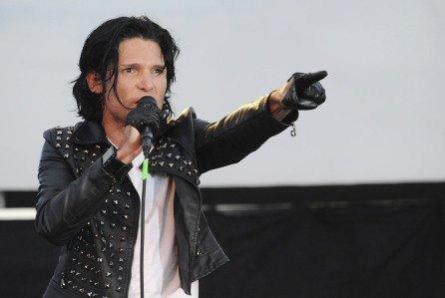
It's a similar argument the Republicans on the House Oversight Committee made against Michael Cohen last week. "You lied before, and you're probably just doing all of this for a book deal. So, why should we trust you now?" or so the general line of questioning went.
That's not to equate Michael Cohen to Wade Robson and Jimmy Safechuck. Instead, it's meant to highlight to the traditional way of attacking someone's credibility: why didn't you tell the truth at the time and how much do you stand to financially gain from this now? It's a logical argument, but it's also an easy way to essentially stick your fingers in your ears and refuse to listen.
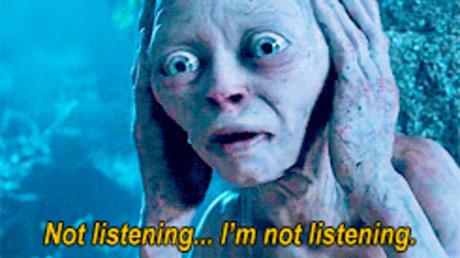
More than that, when applied to the Michael Jackson case it's a question which presumes the accuser should have trusted the cops and court system to work it all out and deliver justice, that is if they were truly telling the truth. Decades of experience says otherwise. For example, the average American's faith in social institutions is plummeting, per The Wall Street Journal:
The Edelman Trust Barometer, an annual survey of confidence in institutions around the world, found earlier this year "a staggering lack of faith in government" in the U.S. In fact, the survey found that trust in government, business, the media and non-government organizations in the U.S. all had fallen in the last year, putting Americans' trust in all those institutions below the average for the 28 nations surveyed.
So, telling us Jackson was cleared by a jury of his peers doesn't mean much if we believe the judicial system - with all of its NDAs, off-the-record settlements, and increasing susceptibility to celebrity and big money - has lost all credibility. You believe the victims, regardless of what some asshole lawyers got a jury to say, especially in a complicated case like this where victims of child molestation often don't come forward until adulthood.
This is possibly why pop culture suddenly seems so preoccupied with adjudicating the past. We increasingly believe the media, courts, and society as a whole failed and often distorted the truth, particularly beginning in the 90s as the news media, faced with competition from 24/7 outlets like CNN willingly turned itself into infotainment. We collectively owe an apology to those who we were once so willing to view as cartoon characters and SNL parodies.
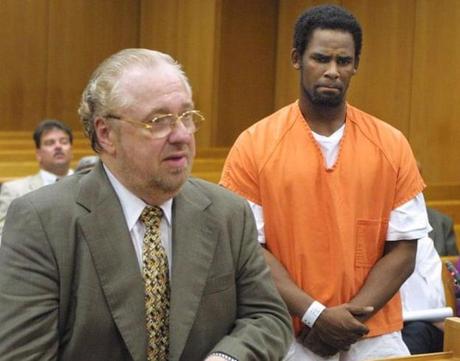
To the casual observer, it can be a bit mystifying, inspiring questions like, "Why now? Why bring this back up now?"
For example:
- We already knew Bill Cosby was an accused rapist. Same goes for R. Kelly and Michael Jackson.
- We already knew John Wayne Bobbitt abused his wife Lorena to the point she felt so desperate and angry that she waited for him to fall asleep one night and then cut off his penis.
- We already knew Marcia Clark was mistreated by the media during the infamous O.J. Simpson trial. Same goes for Monica Lewinsky during the Bill Clinton sex scandal.
Through court documents, memoirs, and rigorous reporting, all of the above was knowable by anyone who cared to look it up. However, it takes time for society as a whole to be ready to actually deal with that knowledge or even acknowledge it. At the same time, it takes complete shocks to the system like Trump's election - a creation of tabloids and reality TV just became President! - or transformative movements like #MeToo to inspire documentarians to re-examine the past and for victims to finally come forward.
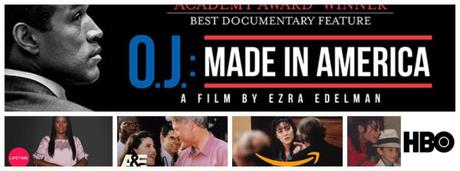
We're apparently ready for all of that now. Like clockwork, pop culture keeps cycling through these news cycles of one well-made, absolutely damning documentary after another - ESPN's O.J.: Made in America (about race relations in America as much as it is about O.J. and Nicole) and The Price of Gold (about Tonya Harding), A&E's The Clinton Affair, Lifetime's Surviving R. Kelly, Amazon's Lorena, and now HBO's Leaving Neverland.
What these documentaries do is put a human face on that which we've previously ignored, revealing the truth behind the tabloid headlines of the 90s and early 2000s. At their best, they inspire real-world change, such as the ongoing court case against R. Kelly.
Few, however, have taken on something as lucrative as the Jackson estate, which is valued in the billions. Naturally, the estate is now suing HBO, and Jackson's supporters are lining up to again defend him since he's no longer around to do it himself.
Despite all of the noise surrounding it, Leaving Neverland ultimately succeeds as a thorough examination of the grooming process between the sexual abuser and the abused. If nothing else, hopefully, it can start a dialogue about that process and open some people's eyes to how gradually it can happen. In the end, however, you either believe Robson and Safechuck stories or you don't. If they are lying, they each deserve an Oscar - or, if Spielberg disagrees, an Emmy.
Leaving Neverland and the Oprah special After Neverland are each available to stream on HBO Now.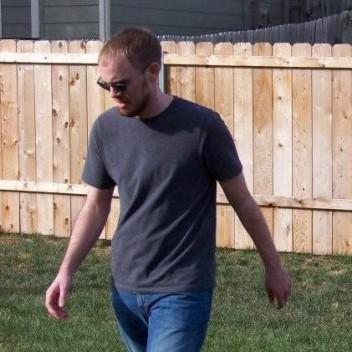
Grew up obsessing over movies and TV shows. Worked in a video store. Minored in film at college because my college didn't offer a film major. Worked in academia for a while. Have been freelance writing and running this blog since 2013. View all posts by Kelly Konda

